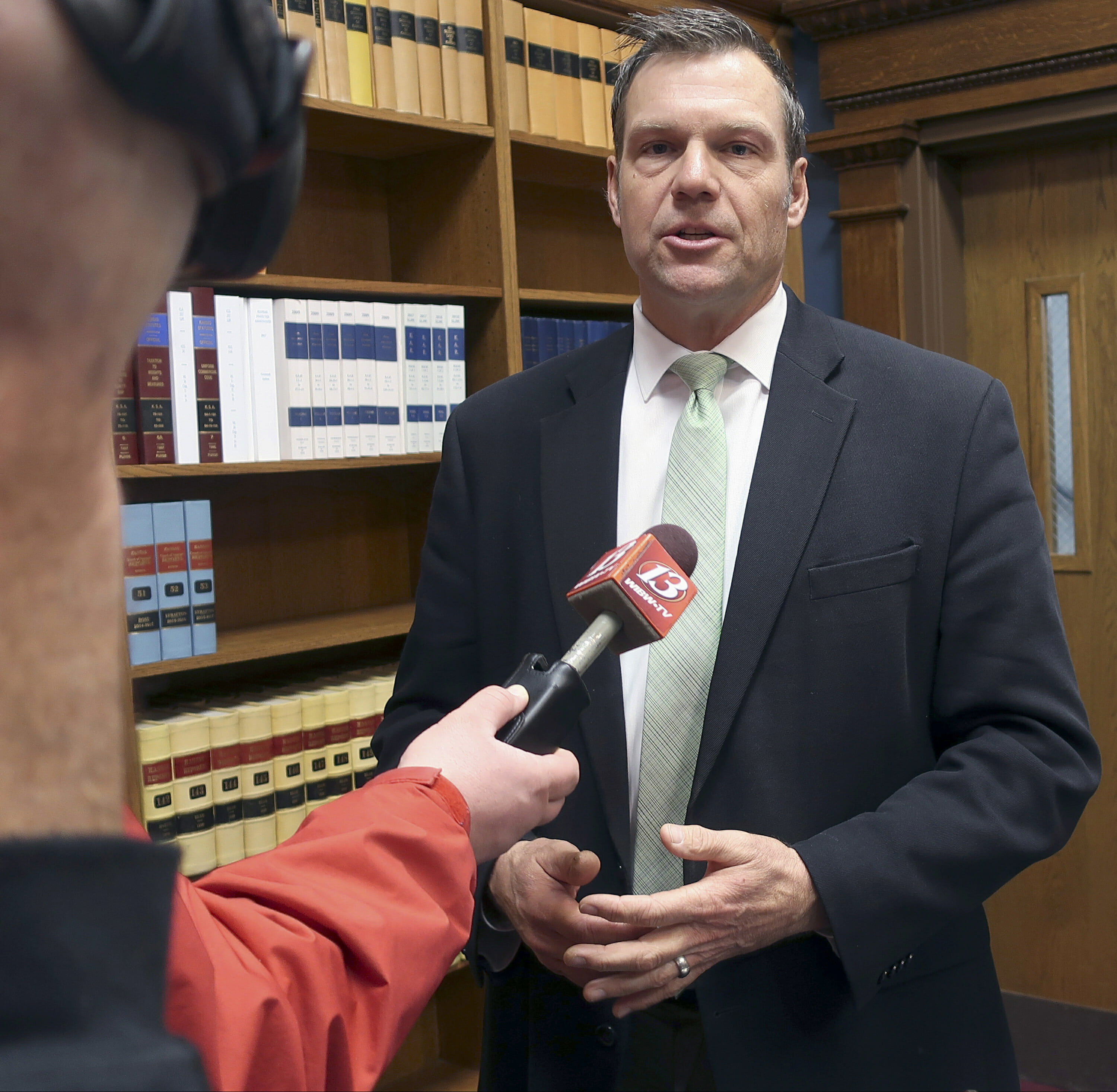
Kansas hopes to resurrect proof-of-citizenship voting law
SALT LAKE CITY (AP) — Kansas’ solicitor general on Monday called on a federal appeals court to reinstate the state’s law requiring people to provide proof of citizenship before they can register to vote, saying problems with how it was enforced during the three years it was in place are fixable.
During a hearing before a three-judge panel of the 10th Circuit Court of Appeals in Salt Lake City in a case with national implications for voting rights, Judge Jerome Holmes questioned attorneys for the state and for plaintiffs who succeeded in getting a lower court to overturn the law, which was in effect from 2013 until 2016. He pointed to evidence that it kept more than 30,000 people from registering to vote even though nearly all of them were citizens.
Solicitor General Toby Crouse said there were problems with the way the law was implemented, but he argued that the state should be able to ensure that ballots are cast legally and called on the court to resurrect the law.
“The rollout is problematic and concerning and should be improved, but that’s not a reason to undermine the law and strike it down as unconstitutional,” he said.
Dale Ho, director of the American Civil Liberties Union’s Voting Rights Project, disagreed. He said cases where people can’t find their birth certificate or afford a new one are inevitable, and the Kansas law contains few fail-safes to ensure citizens can cast a ballot.
“The difficulties of implementing a law like this, which is unique in the country, are baked into the statute,” he said.
The judges didn’t indicate when they might rule.
The legal fight has drawn national attention as Republicans pursue voter ID laws aimed at preventing in-person voter fraud, including by people who are in the country illegally. Many experts say such voter fraud is extremely rare, and critics contend that the Republican-led efforts are actually meant to suppress turnout from groups who tend to back Democrats, including racial minorities and college students.
The law was championed by former Kansas Secretary of State Kris Kobach, who led President Donald Trump’s now-defunct voter fraud commission and was a leading source for Trump’s unsubstantiated claim that millions of immigrants living in the U.S. illegally may have voted in the 2016 election.
Kansas Gov. Laura Kelly, a Democrat, supported the legislation when she was a state senator but opposes resurrecting it. Kobach, who is an attorney, personally defended the statute in the courts while he was secretary of state. Kansas’ Republican attorney general, Derek Schmidt, has taken up its defense during the appeal, saying in an emailed statement that the law was passed by large bipartisan majorities in the Legislature.
“The Legislature is free to repeal the statute if it is no longer favored, but as long as the law requiring documentary proof of citizenship to register to vote remains on the books, we think it, like other duly enacted state laws, deserves a full and vigorous legal defense,” Schmidt said.
Kansas argued in court filings that it has a compelling interest in preventing voter fraud. It contended its proof-of-citizenship requirement is not a significant burden and protects the integrity of elections and the accuracy of voter rolls.
Critics countered that the documentary proof-of-citizenship law was “a disastrous experiment” that damaged the state’s voter rolls, disenfranchised tens of thousands and eroded confidence in the state’s elections.
The National Conference of State Legislatures has counted 35 states that have laws requiring some form of identification at the polls, but the Kansas voter registration statute at issue goes further by requiring people to provide documents such as a birth certificate, U.S. passport or naturalization papers before they can even register to vote. Arizona is the only other state with a similar law in effect, but it is far more lenient and allows people to satisfy it by writing their driver’s license number on the voter registration form. Proof-of-citizenship laws in Alabama and Georgia are not currently being enforced.
Judge Robinson found that between 1999 and 2013 a total of 39 noncitizens living in Kansas successfully registered, mostly due to applicant confusion or administrative error. That is .002 percent of the more than 1.76 million registered voters in Kansas as of Jan. 1, 2013. Eleven of those 39 noncitizens voted.
The registration law took effect in January 2013. In the three years before the appellate court put it on hold, more than 30,732 Kansans were not allowed to register to vote because they did not submit proof of citizenship. That figure represented about 12 percent of voter registration applications.
__
Associated Press writer Roxana Hegeman in Wichita, Kansas, contributed to this report.
The Western Journal has not reviewed this Associated Press story prior to publication. Therefore, it may contain editorial bias or may in some other way not meet our normal editorial standards. It is provided to our readers as a service from The Western Journal.
Truth and Accuracy
We are committed to truth and accuracy in all of our journalism. Read our editorial standards.
Advertise with The Western Journal and reach millions of highly engaged readers, while supporting our work. Advertise Today.












